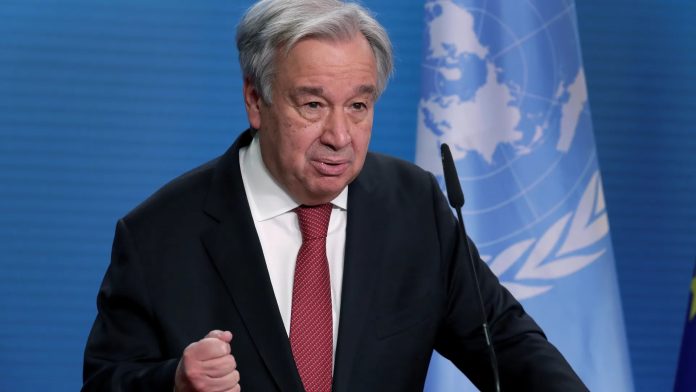The UN General Assembly on Monday debated Russia’s veto in the Security Council, which blocked a draft resolution aimed at preventing a new extraterrestrial arms race.
Due to the negative Russian vote, the Security Council failed to adopt last month’s text, which received 13 votes in favour, with China abstaining. The draft resolution was introduced by United States and Japan, and co-sponsored by over 60 nations.
Assembly Vice-President Ahmad Faisal Muhamad opened the debate by reading a message from Dennis Francis, President of the General Assembly.
Francis expressed concern that the Council could not reach consensus on addressing weapons of mass destruction in outer space.
“Outer space does not belong to individual nations, its peaceful and sustainable use is not subject to national appropriation and must be a place of peace and cooperation for the benefit and in the interest of all countries,” he said.
“The militarisation of outer space is a very concerning trend. Besides further deepening mistrust and divisions, this inevitably threatens life on Earth and could have catastrophic consequences.”
The Assembly President emphasised that the 1967 Outer Space Treaty “clearly prohibits” States parties from placing, installing or stationing in orbit around Earth – or anywhere else in the cosmos – spacecraft carrying nuclear weapons or any other weapons of mass destruction.
Calling on all Member States to help safeguard the UN’s non-proliferation objectives both on earth and in space, he urged nations to take all necessary steps to “keep the space weapons free.”
The debate was held as part of the General Assembly’s mandate under resoluation 76/262 to discuss situation involving Security Council vetoes within 10 days of the veto.
The veto is a unique voting power held by the Security Council’s five permanent members – China, France, Russia, United Kingdom, and United States. A negative vote from any of these countries automatically causes a resolution or decision to fail.
Vasily Nebenzya, Ambassador and Permanent Representative of Russia, explained why his delegation voted against the American draft resolution.
He stated that despite its “beautiful sounding title”, the text failed to address its declared goal because that objective was already covered by existing international agreements and voiced concern the resolution could have had “far-reaching consequences” for disarmament processes.
“During the negotiations on this draft, we attempted in vain to get an answer from the authors on why they were trying to use the Security Council to reaffirm already existing international obligations in the area of outer space exploration,” he said.
He referenced the 1967 Outer Space Treaty which unequivocally prohibits placing weapons of mass destruction in outer space and suggested that discussions on this topic should take place in specialised forums that include all General Assembly members.
Nebenzya criticised the draft for attempting to introduce new restrictions through the Security Council that were not previously established in any international instruments, including the 1967 Treaty, raising “serious doubts from a legal point of view” about these new restrictions.
“Imposing such obligations without preliminary, expert, legal and technical discussions is inadmissible,” he emphasized.
Robert Wood, U.S. Ambassador and Deputy Permanent Representative, emphasised that the debate surrounding Russia’s veto of the draft resolution presents a critical opportunity to promote accountability and transparency among all permanent members of the Council.
Deputy Permanent Representative Robert Wood of the United States, addresses the UN General Assembly plenary meeting on Russia’s use of its veto to quash a draft resolution aimed at keeping weapons out of outer space.
He highlighted that the draft resolution aimed to affirm the obligations of all States parties under the 1967 Outer Space Treaty, particularly over the prohibition of placing nuclear weapons or other weapons of mass destruction in outer space.
He explained that it also urged UN Member States not to develop nuclear weapons specifically designed for deployment in orbit, which would mitigate the risk of a nuclear incident in space and preserve vital satellites essential for communication, security, and sustainable development.
“It should not be at all controversial or difficult for the Security Council to affirm the clear obligations of parties under the Outer Space Treaty, nor should it be difficult to ask that States work together towards our shared interests,” he said.
Wood noted that U.S. and Japan, as the penholders, were deliberate, transparent, inclusive and flexible in their approach to the resolution, with the text evolving based on negotiations.
Regarding Russia’s new proposed draft resolution on the topic, he criticised it as a “diplomatic façade” concealing its “true intentions”.
The reality is that Russia currently possesses several conventional anti-satellite weapons in orbit, he said, citing a 2019 weapon test and ongoing threats against satellites.
“Russia’s actions cast significant doubt as to whether it will uphold its existing legal obligations under the Outer Space Treaty and raise concern about what this means for international peace and security,” he added. (NAN)


